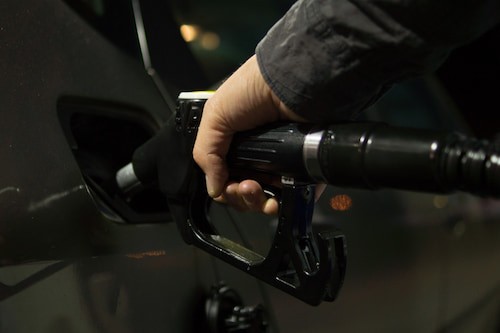

is the world’s leading environmental cause of disease and death and is responsible for nearly 7 million premature deaths around the world each year (1). Combustion of fossil fuels – coal, oil and gas – is its major source.
The United States has made great progress in fighting air pollution, and air pollution in the US has decreased by more than 70% since passage of the Clean Air Act in 1970. However, despite this progress, air pollution remains a major problem and is responsible for nearly 200,000 premature deaths among Americans each year.
Each year, air pollution is responsible for more than 2,400 premature deaths in Massachusetts (2, us).
What is PM2.5 Air Pollution?
Air pollution is a mix of many harmful materials. One of its most dangerous components is pollution consisting of tiny, invisible particles. These fine particulates have a diameter of less than 2.5 microns – many times smaller than the diameter of a human hair. They are called PM2.5, which stands for airborne particulate matter less than 2.5 microns in diameter.
The particles in PM2.5 pollution are so small that they can penetrate deep into the lungs when they are inhaled and they can enter the bloodstream. Once they are in the bloodstream, they can reach every organ in the body to cause damage to tissues and cells.

What are the Health Effects of PM2.5 Air Pollution?
In adults, most of the deaths caused by PM 2.5 air pollution are due to chronic diseases – heart disease, stroke, chronic obstructive pulmonary disease (COPD), lung cancer, and diabetes.

What are the Sources of PM2.5 Air Pollution?
Massachusetts currently emits around 2,500 tons of PM2.5 pollution each year. Most of this pollution is produced by the combustion of fossil fuels (3). Combustion of gasoline and diesel fuel in cars, trucks, and other vehicles is responsible for about 15% of PM2.5 pollution in Massachusetts. Nearly all of the rest (more than 85%) comes from stationary sources such as industrial facilities and electricity generating plants (65).
670,000
tons of PM emitted in US in 2019
197,000
Deaths in US due to PM2.5 (2019)
99%
Of the global population lives in areas that exceed international recommendations.
What Can We Do to Prevent PM2.5 Air Pollution?
Any steps that are taken to reduce fossil fuel combustion and speed the transition to clean energy will reduce PM2.5 pollution and its health effects. We can take some of these steps as individuals. Others are beyond the control of individuals and can be taken only by the government.
Steps that individuals can take to reduce air pollution include driving less, taking public transport, buying a hybrid or fully electric vehicle for your next car, converting home energy to solar power, and reducing plastic use.
Many actions to control air pollution can only be taken by governments. Our team has generated a series of recommendations for local and regional governments to consider. They include:
| State Level | Local Level |
|---|---|
| Increasing air monitoring stations in Massachusetts | Converting all municipal vehicle fleets – cars, trucks, buses - to hybrid and fully electric |
| Increasing economic incentives and tax breaks for solar panels, windmills, and geothermal installations | Placing solar panels on the roofs of municipal buildings |
| Encouraging higher standards for air quality | Preferentially purchasing electricity produced by renewable energy |
| Publishing annually updated information about air pollution emissions in an interactive dashboard-style format | Revising building codes to increase energy efficiency |
| Prohibiting gas hook-ups in new construction |
We encourage you to reach out to your local elected officials to urge them to consider implementing these changes. They are small steps that can make a whole world of difference.
Air pollution in the US has decreased by more than 70% since 1970 (4). There is a lot to be excited about and a lot to hope for. But we cannot become complacent and we have to work to keep cleaning our air today. If we in Massachusetts can hold ourselves to a higher standard and reduce our PM2.5 emissions, then we truly will have a Clean Air Mass.